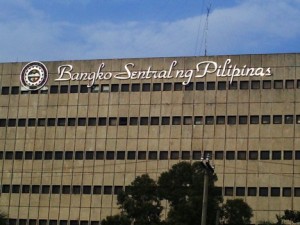‘Major PH banks can withstand loan defaults, other shocks’—BSP
MANILA, Philippines—The country’s big banks can withstand shocks, such as a rise in loan defaults, should global economic problems spill over to the Philippines, as the level of their capital continues to exceed domestic regulatory requirements and international standards.
So declared the Bangko Sentral ng Pilipinas, which reported Wednesday that the average capital adequacy ratio of universal and commercial banks in the country stood at 17.95 percent as of the third quarter of 2012.
This was up from 16.87 percent in the previous quarter and from 16.4 percent in the third quarter of 2011.
Moreover, the latest capital adequacy ratio was above the 10-percent minimum requirement set by the BSP and more than twice the international standard of 8 percent.
A key indicator of a bank’s ability to absorb risks, capital adequacy ratio is the proportion of a bank’s capital to its assets. Capital serves as a buffer in the sense that banks can tap into it in case they incur investment losses to stay afloat.
For purposes of determining capital adequacy, assets are computed using risk weights; assets that are more susceptible to risks (meaning, the probability of a loss is higher) are assigned higher weights, while those that are less exposed to risks are given lower weights.
The BSP said in a report that the capitalization of banks improved during the first quarter because of the banks’ fund-raising activities, mainly sale of corporate bonds, and decisions to retain portions of their earnings.
The regulator also reported that “consolidated capital adequacy ratio,” which covers capital adequacy not only of the banks but their subsidiaries, rose to 19.01 percent as of the end of September 2012.
This was up from 17.96 percent in the previous quarter and 17.4 percent as of September 2011.
“The latest figures suggest that universal and commercial banks continue to recognize the value of having adequate capital for the risk exposures they take in the pursuit of financial stability,” the BSP said.
Because of their comfortable level of capitalization, the BSP expressed confidence that banks in the country would be able to support growth of the economy through the extension of loans and other financial services to consumers and businesses.
This would be so even in a worst-case scenario in which global economic problems start to spill over to the Philippines, the BSP said. One potential manner of spillover is when crisis abroad leads to a contraction in demand for goods produced by Filipino exporters, thereby dragging their ability to repay bank loans.
“The high levels of CAR provide the banking industry with a first line of defense against potential volatilities,” the BSP said.
“The decision of universal and commercial banks to retain earnings and issue additional capital (through sale of bonds to portfolio investors) reflects the proactive stance of the banks in managing their overall risk exposures,” the BSP said.















